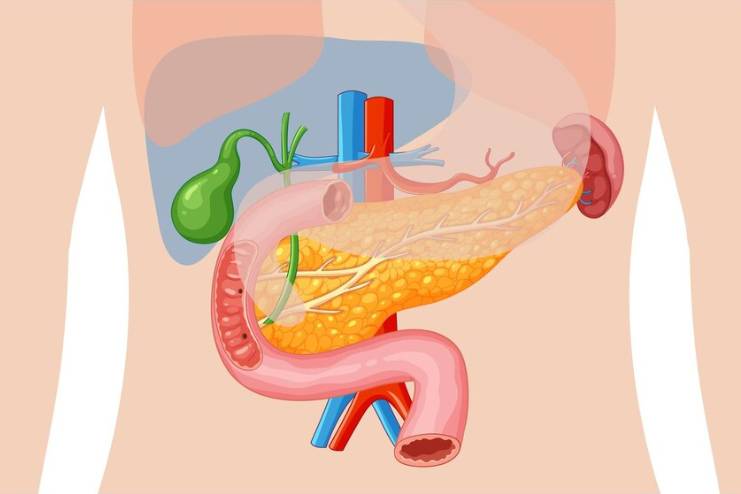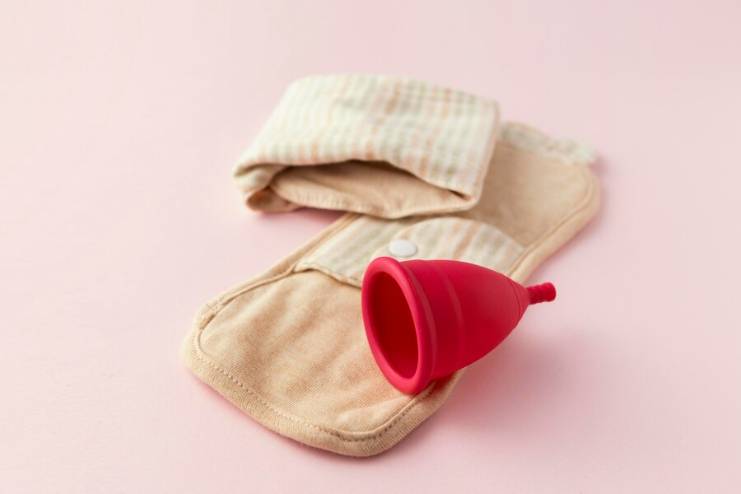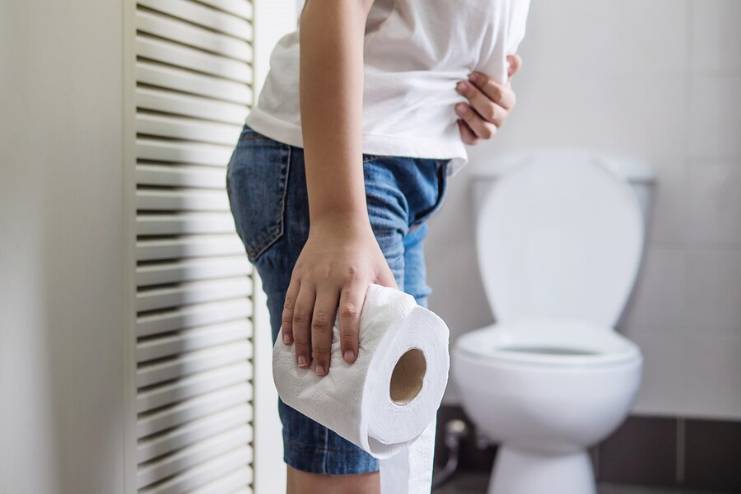Affiliate Disclaimer
Some links in this article are affiliate links. We may earn a small commission if you make a purchase through these links, at no extra cost to you. We only recommend products we find useful to our readersThe monthly menstrual cycle can bring unexpected digestive changes, including diarrhea, constipation, and frequent bowel movements, often referred to as “period poop.” Such changes are strongly associated with hormonal changes throughout the cycle.
During menstruation, hormones like estrogen and progesterone fluctuate, which not only affects the reproductive system but also causes digestive issues. Moreover, prostaglandins, which contract the uterus and shed its lining, may affect the intestines, leading to cramping and discomfort.
Understanding the relationship between hormones and periods can help explain these digestive shifts and offer ways to manage them.
Why Does Period Poop Happen?

Period poop occurs due to hormonal shifts during the menstrual cycle. One of the leading causes is prostaglandins, which help the uterus contract to shed its lining. However, prostaglandins also affect the muscles in the intestines, which increases bowel movements during your period. This leads to diarrhea. On the flip side, hormone fluctuations during menstruation, especially spikes in progesterone, can slow down bowel movements, resulting in constipation for some.
Diet changes and cravings, often experienced during menstruation, can further disrupt digestion, contributing to bloating or diarrhea. Understanding how prostaglandins and period-related hormonal imbalances influence your digestive system explains why these digestive issues are common during menstruation.
Also, read: Why Your Period Won’t Stop: 12 Common Causes and Solutions
Common Digestive Symptoms During Menstruation

1. Bloating During Your Period:
Many women experience bloating during their periods, characterized by a sensation of fullness and water retention. This is due to the hormonal fluctuations that occur throughout the menstrual cycle.
2. Gas and Abdominal Cramps:
Besides bloating, some women experience gas and abdominal cramps, contributing to overall discomfort during their menstrual cycle. These symptoms can be exacerbated by the hormonal changes occurring during menstruation.
3. Diarrhea and Menstruation:
Diarrhea during a period can be another frequent digestive issue. Increased prostaglandin levels stimulate bowel movements, leading to more frequent and urgent trips to the bathroom.
5. Constipation During Menstruation:
Conversely, constipation during the period is also common. Elevated progesterone levels can slow down digestion, resulting in harder and less frequent stools.
6. Impact of Emotional Stress:
Emotional stress and anxiety can amplify digestive symptoms. Studies have shown that emotional symptoms are closely linked to gastrointestinal disturbances, making it essential to manage stress during your period.
Also, read: 10 Pressure Points That Provide Relief From Period Cramps
How to Ease Digestive Discomfort

1. Increase Fiber Intake:
Increasing fiber intake is one of the best period digestive remedies. Fiber helps regulate bowel movements, making it especially beneficial for women experiencing constipation during their period. Foods rich in fiber, such as leafy greens, whole grains, fruits, and vegetables, promote better digestion. For those with diarrhea during menstruation, opt for soluble fibers like bananas and oats, which help bulk up stool and ease symptoms without causing excess gas or bloating.
Also, read: Tips to Reduce Too Much Fiber in Your Diet
2. Stay Hydrated:
Hydration is crucial for managing digestive discomfort. Drinking plenty of water and herbal teas, such as peppermint or ginger, can help ease digestive issues during periods. These teas not only soothe digestive discomfort but also reduce bloating and cramping.
3. Incorporate Probiotics:
Adding probiotics to your diet through yogurt or supplements can improve gut health and balance the digestive system during your period. Probiotics support good bacteria in the gut, which can alleviate digestive disturbances.
4. Engage in Light Physical Activity:
Light exercise, such as yoga or walking, can stimulate bowel movements and reduce cramping. Physical activity helps ease digestive discomfort by encouraging regular digestion and reducing stress.
5. Avoid Triggers and Manage Stress:
Avoiding triggers like caffeine, processed foods, and salty snacks can prevent dehydration and bloating. Also, managing stress through meditation and deep breathing can reduce emotional triggers that may worsen digestive symptoms.
Also, read: 26 Things You Should Avoid During Periods – Experts Advice!
When to See a Doctor

While many digestive issues during menstruation are normal, specific symptoms may warrant a visit to a healthcare provider. If you experience severe period digestive issues such as persistent abdominal pain, significant changes in bowel habits, or extreme bloating that interferes with daily activities, it’s crucial to seek medical advice. These could be indicators of underlying health conditions like endometriosis or irritable bowel syndrome (IBS), which require professional diagnosis and treatment.
Consult a healthcare provider if you have severe period symptoms that do not improve with over-the-counter remedies or lifestyle changes. Additionally, if you notice symptoms such as blood in your stool, unexplained weight loss, or severe fatigue, it’s essential to get evaluated to rule out more serious conditions. Early intervention can help manage symptoms effectively and improve your overall well-being.
Conclusion
The digestive problems associated with menstruation are not easy to deal with, but knowing their root causes is essential. Among the causes are changes in hormone levels, mainly estrogen and progesterone. Other chemicals, such as prostaglandins, help induce contractions of the uterus and affect the intestines, partly responsible for diarrhea and constipation.
Symptoms such as bloating, diarrhea, constipation, and gas are all common and, once recognized, allow women to take better care of their digestion during this time. Many such symptoms can be mitigated by increasing fiber intake, maintaining hydration, adding probiotics, and doing light exercise. Other ways of easing discomfort include managing stress and avoiding food triggers.
Yet, one should know when to visit the doctor. Severe chronic symptoms, like severe abdominal pain and a complete change in bowel habits, may relate to serious underlying health conditions such as IBS. The more aware and informed women are about their menstrual cycle and its relationship with gastrointestinal functions, the more possibilities there will be for handling these digestive issues during their periods.
Other Related Articles:
In this Article


















